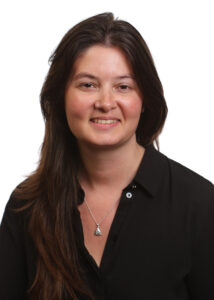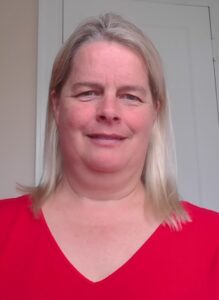When Neil Forbes joined the Maritime SPOR SUPPORT Unit (MSSU) as an Indigenous Allyship and Engagement Mentee, he thought of it as a step in his PhD journey. What he didn’t anticipate was how profoundly the experience would shape his academic career and his role in strengthening Indigenous allyship in health research across the Maritimes.
As a mentee, Neil’s role focused on contributing to Indigenous engagement knowledge, strengthening capacity through training, and developing his own leadership skills by working with MSSU’s networks and committees. MSSU had also funded other mentee positions as a strategic initiative, building capacity both internally and across the health research community.
“I came in feeling young and inexperienced, but at the same time confident in what I could contribute,” Neil said. “The MSSU welcomed me fully and gave me space to learn by doing. Being included in Scientific Leadership Committee meetings — being in the room where decisions were made — gave me the confidence that I could do this work.”
A member of the Saddle Lake Cree Nation and a signatory to Treaty No. 6, Neil was raised on Epekwitk (Prince Edward Island), located in Mi’kma’ki, the ancestral and unceded territory of the Mi’kmaq people, without his Indigenous family, language, or culture — a reality shaped in part by the trauma inflicted on his father and grandparents by the residential school system.
This personal journey has fueled his academic and professional path, including publishing Decolonization of the Settler Colonial Self.
Stepping Into Leadership
After about a year and a half as a mentee under the supervision of MSSU Science Lead Dr. Jason Hickey, Jason transitioned out of the role. Recognizing Neil’s readiness, MSSU invited him to step in as the new Science Lead for Indigenous Engagement and Allyship.
This was more than a change in title. Neil was now able to guide MSSU’s approach to Indigenous allyship. With the support of MSSU leadership, he set a clear agenda: Indigenous communities would lead the way, and MSSU would not add to the burden by pressuring them into projects before they were ready.
“We actively decided not to bother Indigenous communities and not enable bad research. Instead, we focused on stopping harmful approaches and supporting non-Indigenous researchers to better understand their roles. From the outside it might look like not much is happening, but that pause, and foundation-building is exactly what’s needed in Mi’kma’ki and Wabanaki territory right now.”
Through training, consultation, and relationship-building, Neil and MSSU have created a healthier environment for Indigenous allyship in research.
“I’m genuinely proud of the work we’re doing. Sometimes there are worries, but the truth is we’re doing really well.”
Building a Lasting Legacy
MSSU’s support also gave Neil the breathing room he needed to focus on his PhD. A year of funded time allowed him to focus on his studies and ultimately positioned him to move into a faculty role in Indigenous Studies at the University of Prince Edward Island.
“Without that MSSU funding, I wouldn’t have been able to step back, focus on my PhD, and be ready when the UPEI opportunity came. That investment changed the trajectory of my career,” Neil said.
Now as a professor, Neil teaches courses on Indigenous art, film, research methodologies, decolonization, and resistance. The program is growing rapidly, with strong interest from non-Indigenous students who want to bring Indigenous perspectives into fields like education, history, and political science.
At the same time, he continues to collaborate with MSSU — contributing expertise, supporting new projects, and maintaining regional connections that bridge Indigenous and non-Indigenous research communities.
“This work is about relationality. MSSU supported me, and now I feel a duty to continue supporting MSSU. That’s how this relationship works — it’s genuinely mutually beneficial.”
In Indigenous contexts, relationality refers to the understanding that all things — people, communities, land, and knowledge — are interconnected, and that we carry responsibilities to act with respect and accountability within those relationships.


